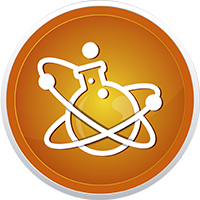Por favor, use este identificador para citar o enlazar este ítem:
http://repositorio.ikiam.edu.ec/jspui/handle/RD_IKIAM/210| Título : | A collaboratively derived environmental research agenda for Galápagos |
| Autor : | Izurieta, Arturo Delgado, Byron Moity, Nicolas Calvopiña, Monica Cedeño, Yvan Banda-Cruz, Gonzalo Cruz, Eliecer Aguas, Milton Arroba, Francisco Astudillo, Iván Bazurto, Diana Soria, Mónica Banks, Stuart Bayas, Steve Belli, Simone Bermúdez, Rafael Boelling, Nicolai Bolaños, Jimmy Borbor, Mercy Brito, Ma. Lorena Bucheli, Leopoldo Campbell, Karl Carranza, David Carrión, Jorge Casafont, Maria Castro, Xavier Chamorro, Sandra Chávez, Juan Chicaiza, David Chumbi, René Couenberg, Paulina Cousseau, David Cruz, Marilyn d’Ozouville, Noemí de la Guía, Cristina de la Torre, Giorgio Molina Díaz, Carla Duchicela, Jessica Endara, Daniel Garcia, Vanessa Gellibert, Cynthia Gibbs, James Guzmán, Juan Carlos Heylings, Pippa Iglesias, Andrés Izurieta, Juan Carlos Jaramillo, Patricia Klingman, Asleigh Laurie, Andrew Leon, Patricia Medina, Jaime Mendieta, Edison Merlen, Godfrey Montalvo, Carla Naula, Edwin Paez, Diego Peralta, Manuel Peralvo, Marcos Piu, Mario Villarraga, Hernán G. Rousseaud, Ana Pozo, Mireya Proaño, Daniel Ramos, Mónica Rueda, Danny Salinas, Pelayo Salmoral, Gloria Saraguro, Silvia |
| Palabras clave : | Galápagos Investigations Ecuador |
| Fecha de publicación : | 2018 |
| Editorial : | Surey Beatty & Sons |
| Citación : | Izurieta, A., Delgado, B., Moity, N., Calvopiña, M., Cedeño, I., Banda-Cruz, G., … Sutherland, W. J. (2018). A collaboratively derived environmental research agenda for Galápagos. Pacific Conservation Biology 24(2), 168-177 doi: 10.1071/PC17053 |
| Citación : | PRODUCCIÓN CIENTÍFICA-ARTÍCULOS;A-IKIAM-000147 |
| Resumen : | Galápagos is one of the most pristine archipelagos in the world and its conservation relies upon research and sensible management. In recent decades both the interest in, and the needs of, the islands have increased, yet the funds and capacity for necessary research have remained limited. It has become, therefore, increasingly important to identify areas of priority research to assist decision-making in Galápagos conservation. This study identified 50 questions considered priorities for future research and management. The exercise involved the collaboration of policy makers, practitioners and researchers from more than 30 different organisations. Initially, 360 people were consulted to generate 781 questions. An established process of preworkshop voting and three rounds to reduce and reword the questions, followed by a two-day workshop, was used to produce the final 50 questions. The most common issues raised by this list of questions were human population growth, climate change and the impact of invasive alien species. These results have already been used by a range of organisations and politicians and are expected to provide the basis for future research on the islands so that its sustainability may be enhanced. |
| URI : | http://dspace.ikiam.edu.ec:8080/jspui/handle/RD_IKIAM/210 https://doi.org/10.1071/PC17053 |
| Aparece en las colecciones: | ARTÍCULOS CIENTÍFICOS |
Ficheros en este ítem:
| Fichero | Descripción | Tamaño | Formato | |
|---|---|---|---|---|
| A-IKIAM-000147.pdf | A collaboratively derived environmental research agenda for Galápagos | 284,75 kB | Adobe PDF |  Visualizar/Abrir |
Este ítem está sujeto a una licencia Creative Commons Licencia Creative Commons





